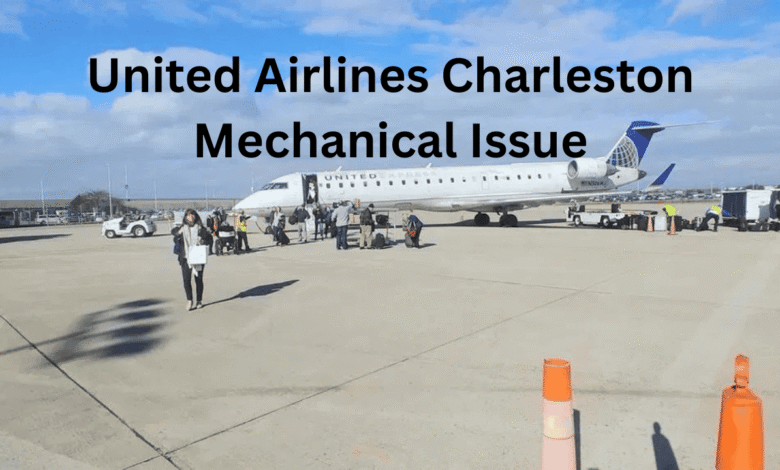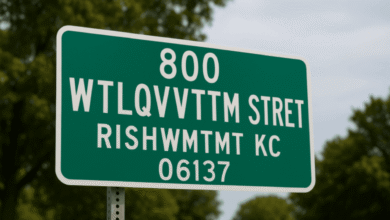United Airlines Charleston Mechanical Issue: What Happened and What Passengers Should Know

The recent united airlines charleston mechanical issue has drawn attention from both travelers and aviation enthusiasts. On June 19, 2025, a United Airlines flight arriving at Charleston International Airport faced a technical problem shortly after landing. While no injuries were reported, the situation required quick action from the crew, airport staff, and emergency responders.
Passengers were asked to deplane as fire trucks and airport personnel surrounded the aircraft. Although details about the exact mechanical fault were not released, the event raised questions about airline safety, passenger rights, and how such situations are managed in real time.
This article takes a closer look at the united airlines charleston mechanical issue, how the airline responded, what passengers experienced, and the larger context of safety protocols in the aviation industry.
Timeline of the Charleston Mechanical Issue
The united airlines charleston mechanical issue unfolded late in the evening, creating a sense of surprise among passengers. Reports indicate that the flight landed normally but encountered a problem after touching down. Airport emergency crews quickly moved into position, signaling that the situation required precautionary measures.
Passengers were safely escorted from the aircraft to the terminal. According to eyewitness descriptions, at least two fire trucks were visible alongside the plane, reflecting the seriousness of the response. While the precise cause of the mechanical problem was not made public, the airline emphasized that safety remained the top priority.
Passenger Experience and Immediate Response
For travelers onboard, the united airlines charleston mechanical issue created uncertainty. Being asked to leave a plane under the watch of fire crews is never a comfortable experience. However, passenger accounts note that the evacuation was calm and orderly.
Many travelers expressed relief that the flight had landed before the issue surfaced. Unlike airborne emergencies, this situation occurred on the ground, which gave staff more time and flexibility to act. The prompt involvement of Charleston International Airport’s fire and rescue team highlighted the readiness of local authorities to support unexpected incidents.
The Role of Safety Protocols in Mechanical Issues
The united airlines charleston mechanical issue also sheds light on why airlines enforce strict maintenance and safety rules. Even minor mechanical concerns can escalate if not addressed immediately. Airlines are required to follow rigorous inspection schedules, and pilots are trained to recognize warning signs quickly.
When a fault is detected, airlines often ground the aircraft until certified engineers can clear it for future flights. This cautious approach may frustrate passengers due to delays, but it reflects the aviation industry’s commitment to preventing risks before they become dangerous.
Communication Challenges During the Incident
One aspect of the united airlines charleston mechanical issue that stands out is communication. Passengers often feel left in the dark when delays or evacuations occur. While United Airlines and airport staff handled the logistics well, some travelers reported that updates were limited.
Clear and frequent announcements can help reduce stress during these situations. Airlines are increasingly recognizing that passenger trust depends not only on safety but also on how well they communicate when problems arise.
Passenger Rights During Mechanical Problems
Events like the united airlines charleston mechanical issue also raise important questions about passenger rights. When mechanical issues cause delays, cancellations, or diversions, travelers often wonder what they are entitled to receive from the airline.
In the United States, airlines are not legally required to provide compensation for delays caused by mechanical faults. However, they may offer hotel stays, meal vouchers, or rebooking options depending on the length of the disruption. It is always a good idea for passengers to ask about available support and to check their ticket’s terms and conditions.
Broader Context: Mechanical Issues in Commercial Aviation
The united airlines charleston mechanical issue is not an isolated case. Across the aviation industry, mechanical faults are a reality of operating complex aircraft. While they are relatively rare, airlines must be prepared to handle them at any time.
According to aviation safety statistics, mechanical issues are far less likely to cause accidents today than in the past, thanks to better technology, stricter regulations, and improved maintenance practices. Most incidents, like the one in Charleston, end without injuries and serve as reminders of the safety-first approach in modern aviation.
Lessons Learned from the Charleston Incident
There are several takeaways from the united airlines charleston mechanical issue:
- Passengers remained safe, which shows that emergency protocols were effective.
- Quick coordination between airline staff and local emergency responders minimized risks.
- Communication with passengers could be improved, as uncertainty often causes more stress than the delay itself.
- The incident underlines the importance of ongoing maintenance and the readiness of crew members to respond under pressure.
How Passengers Can Prepare for Unexpected Flight Issues
While travelers cannot prevent incidents like the united airlines charleston mechanical issue, they can be prepared. Some useful tips include:
- Stay calm and follow crew instructions immediately.
- Keep essential items such as medications, identification, and chargers in carry-on luggage for easy access.
- Know your rights regarding rebooking and possible assistance.
- Sign up for flight notifications through airline apps for real-time updates.
Preparedness can make unexpected disruptions easier to handle and reduce stress during travel.
Conclusion
The united airlines charleston mechanical issue serves as a reminder that even in modern aviation, mechanical problems can still occur. What matters most is how quickly and effectively airlines respond to protect passengers. In this case, United Airlines, Charleston airport staff, and emergency crews managed the situation without injury, proving that safety systems work as intended.
For passengers, the event reinforces the importance of patience, awareness of rights, and trust in safety protocols. While no traveler welcomes a delay or evacuation, the Charleston incident highlights that precautionary action is always better than risk. Ultimately, the united airlines charleston mechanical issue illustrates both the challenges and the strengths of today’s air travel system.



